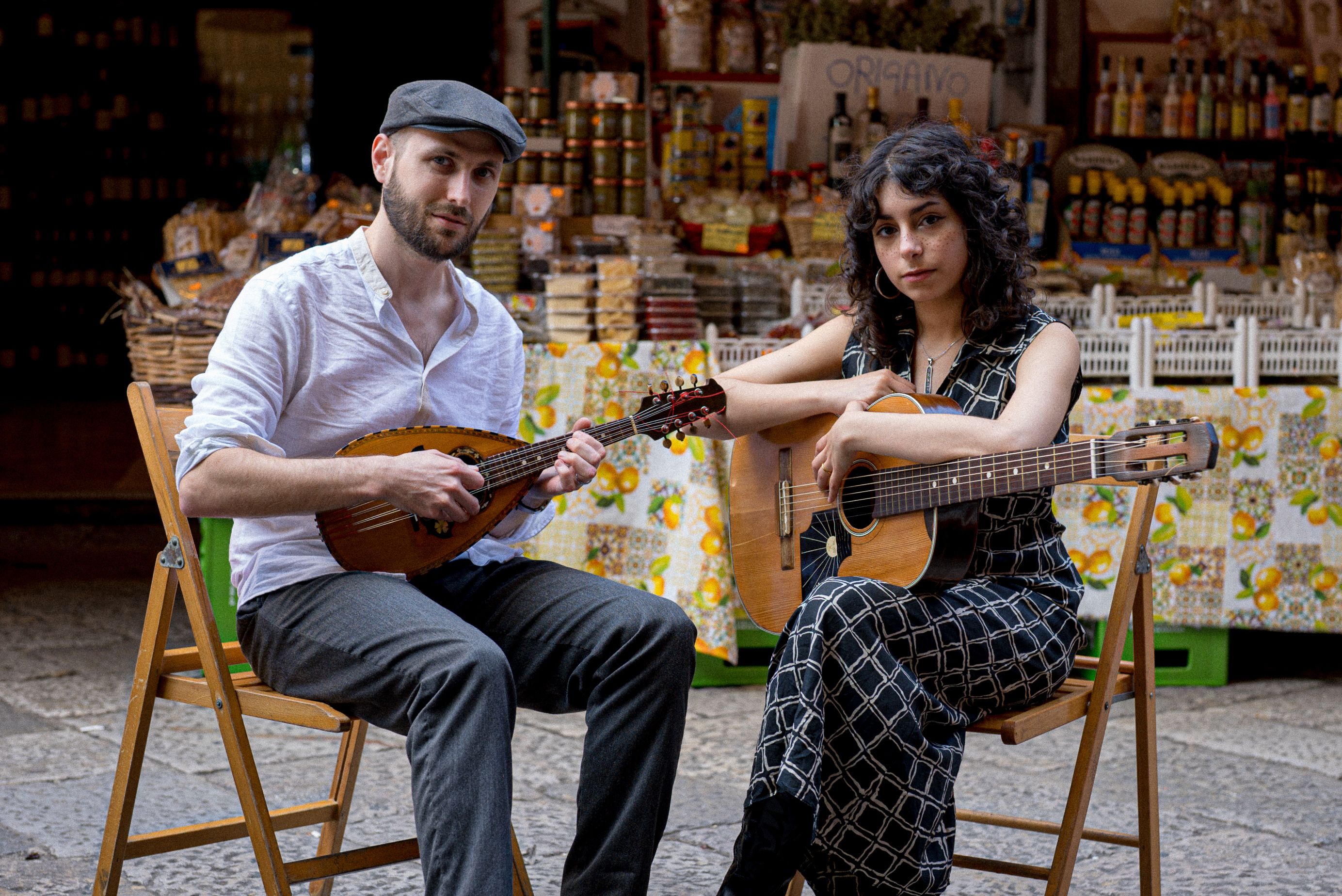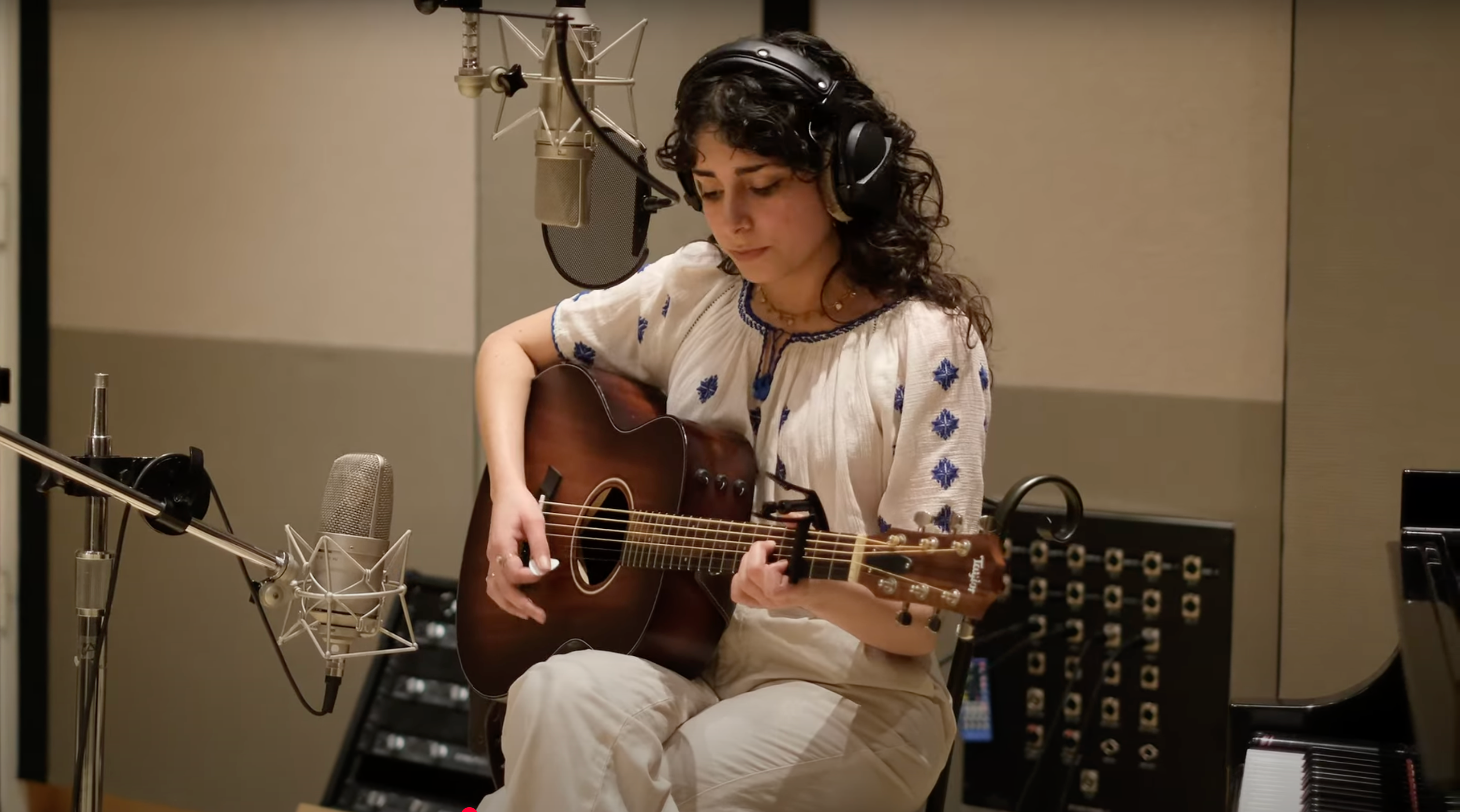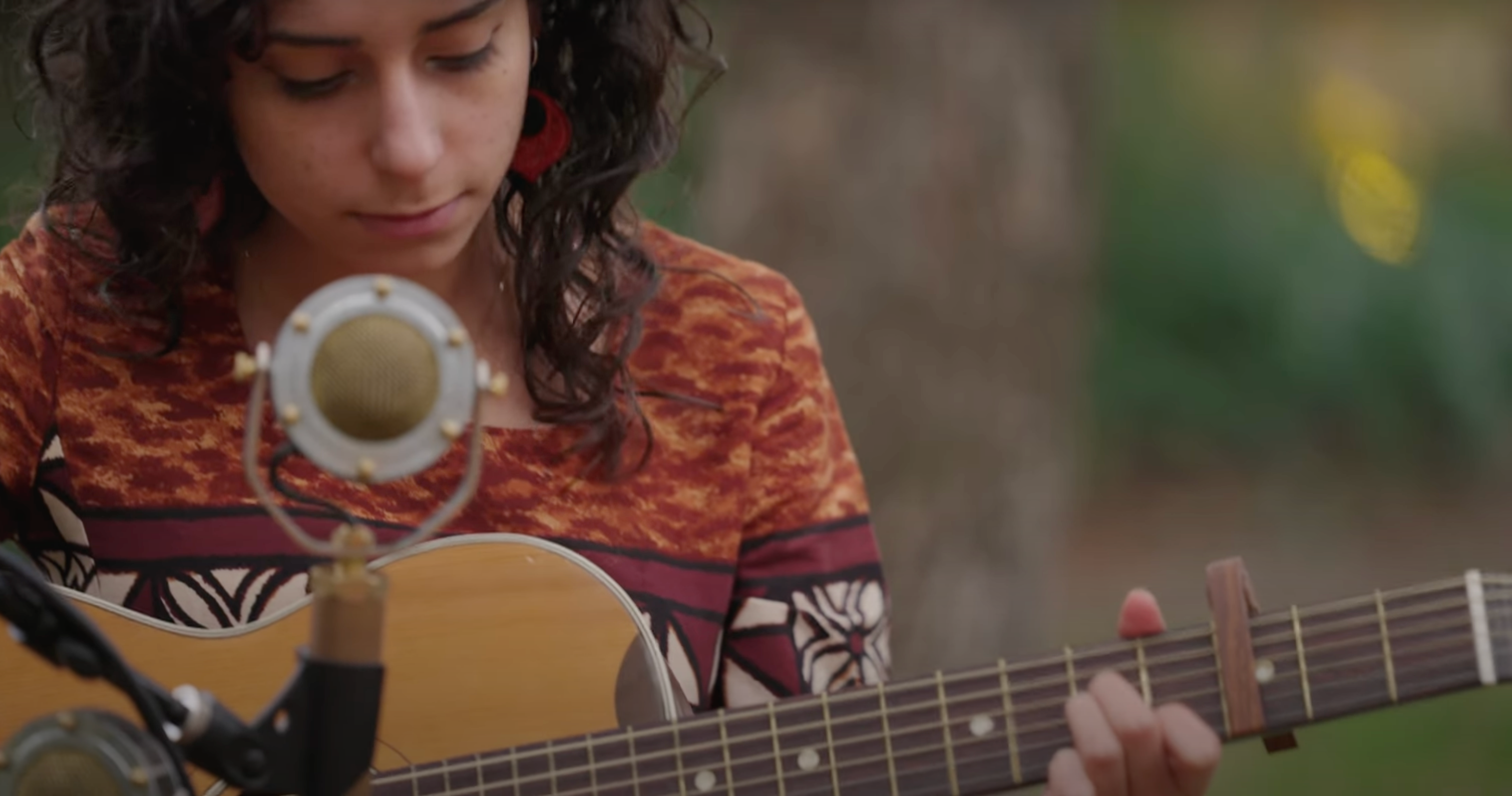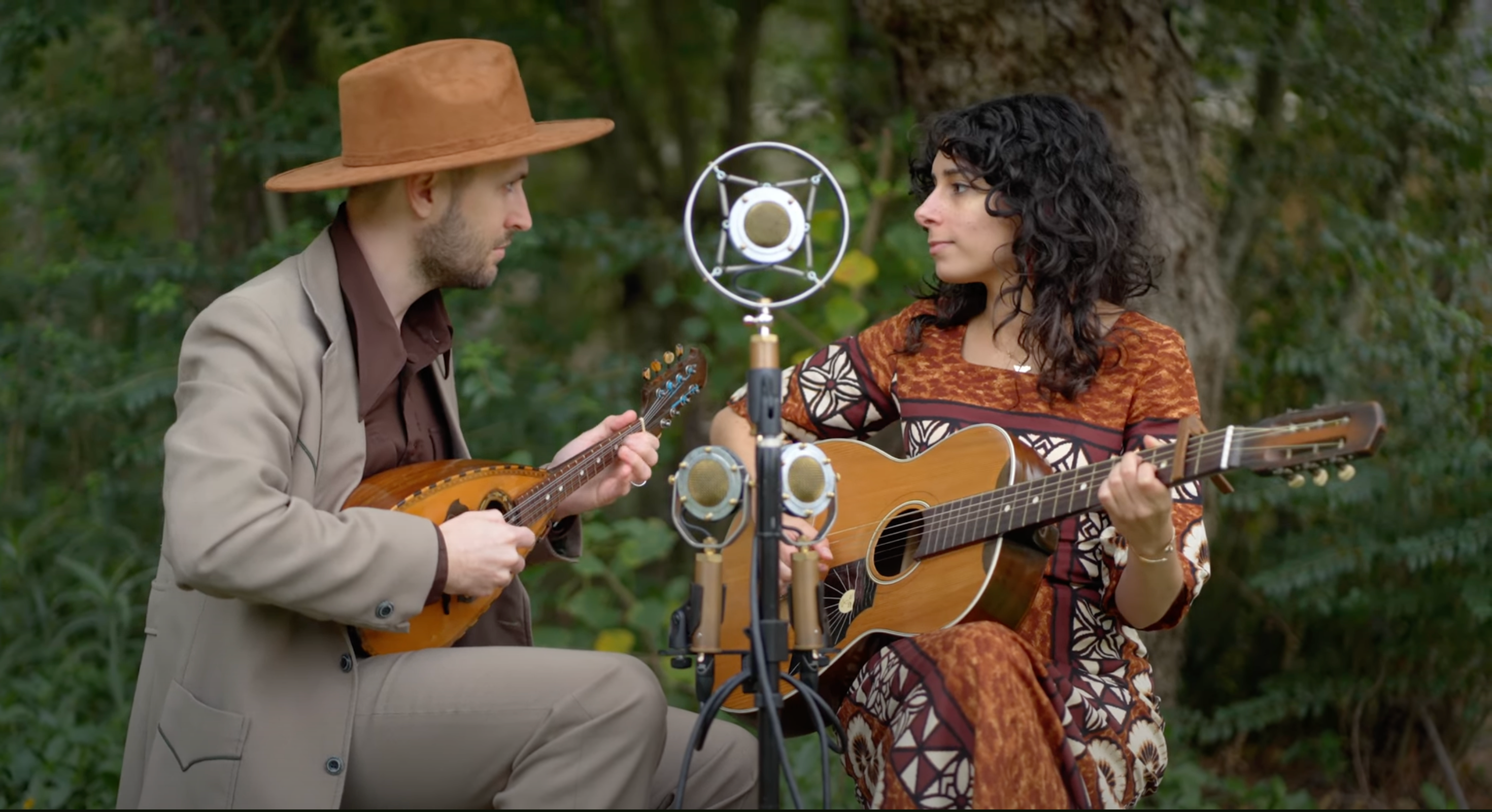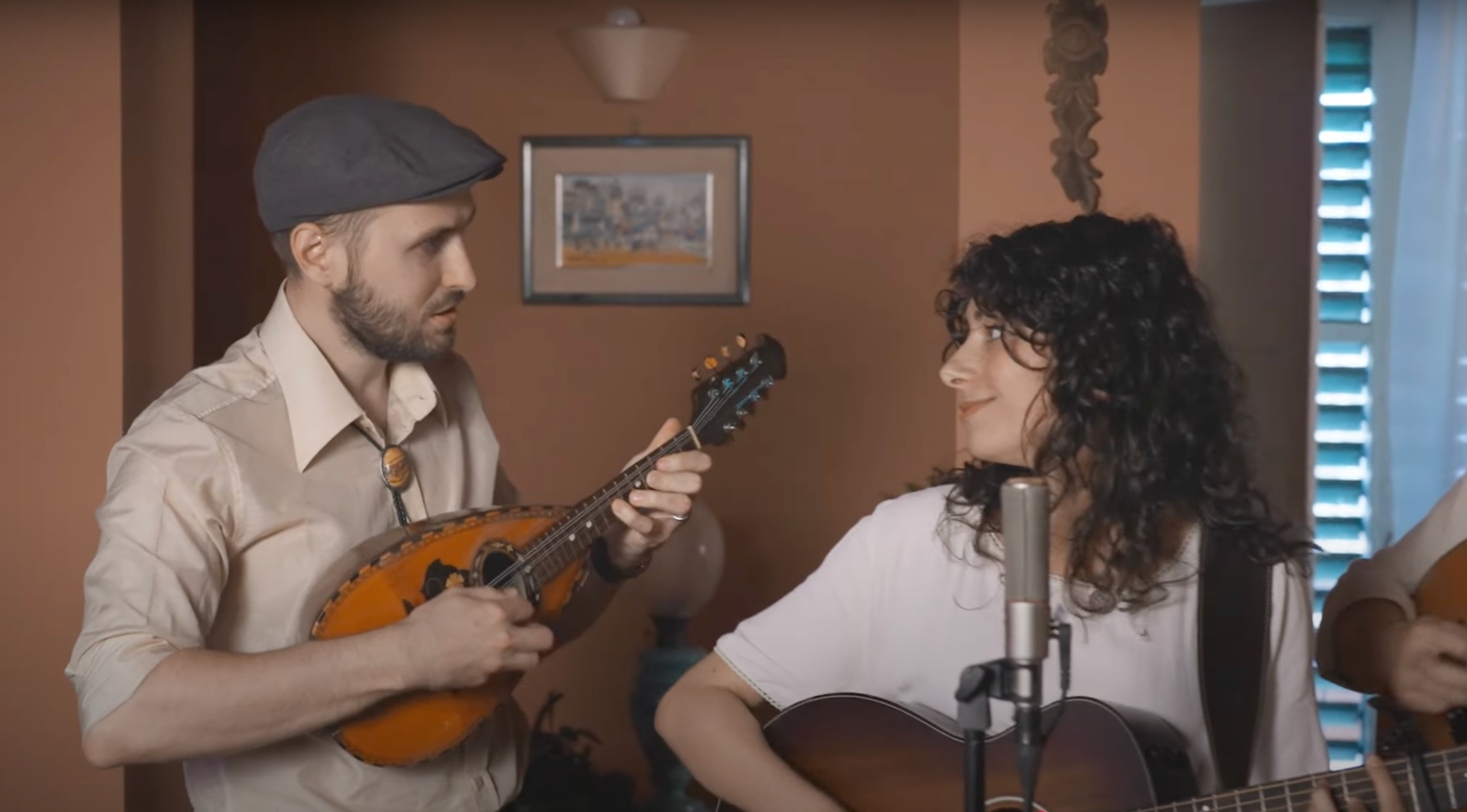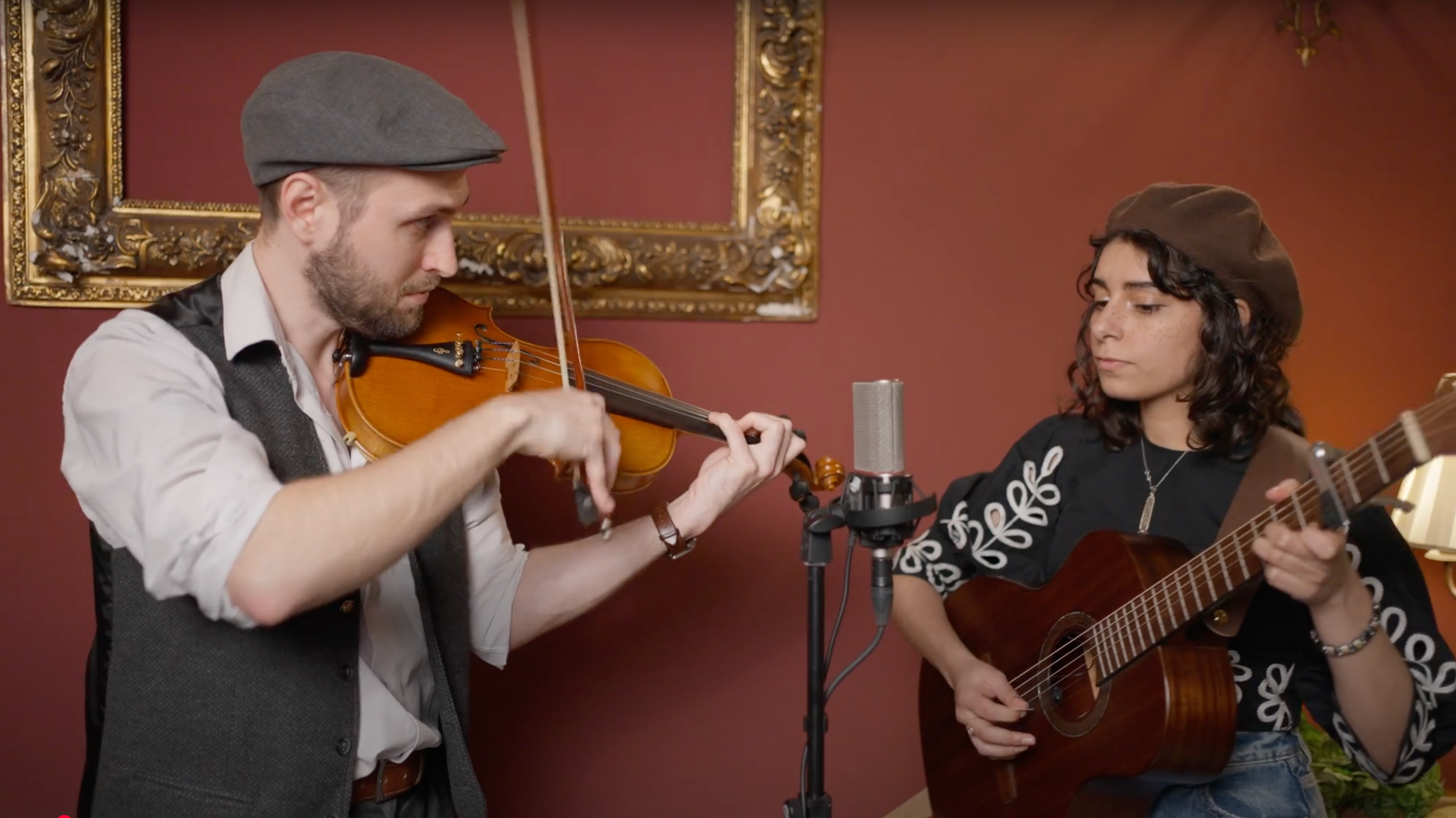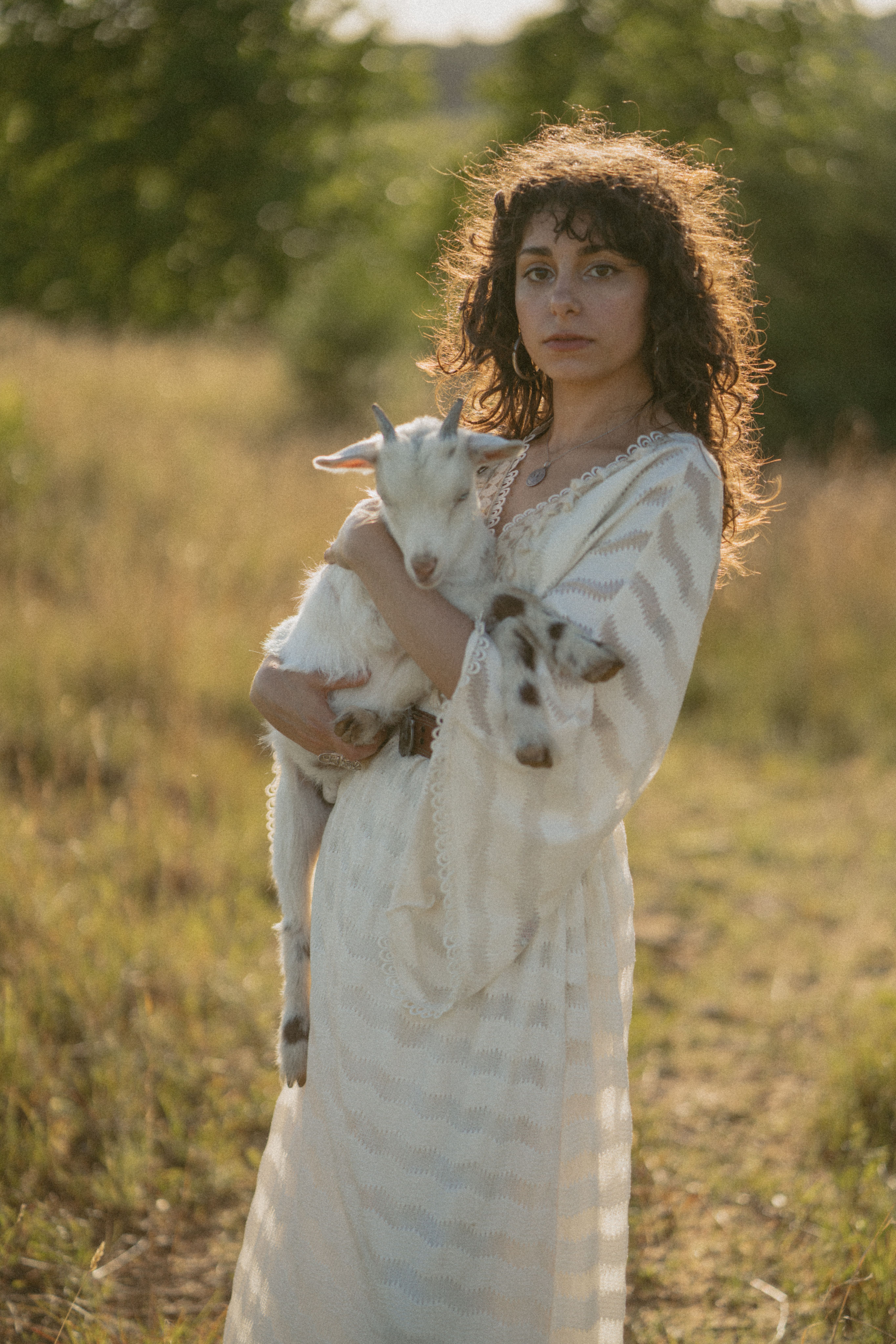In her bright red teenage bedroom, she started writing songs about her life and family, later singing them at coffeehouses and motorcycle bars. Her curiosity eventually led her to Palermo on a Fulbright fellowship, where she spent two years developing To Sing and Recount (Canta e Cunta) — a digital storytelling project that translates and revitalizes Southern Italian folk songs, revealing their startling relevance to contemporary social issues worldwide.
At fourteen, surfing the internet, Pascali happened upon Sicilian folk legend Rosa Balistreri’s music and was immediately struck by her rebelliousness. “She was more punk than any of the bands whose posters hung on my wall,” Pascali recounts. “Rosa defied all the norms of her time. She endured famine and poverty: learning to read at thirty-two, picking up a guitar at forty, then turning both into tools of resistance.” Pascali began translating these canzoni d’autore and traditional songs into English, marveling at the vivid characters populating her songs. They reminded her of Bob Dylan’s protagonists, but wilder, rawer — a thousand times more revolutionary. Her new album, Roses and Basil, reimagines these and other folk song translations alongside her own immigrant-American folk songs.
“Wake Up, Baby,” the lead single from Roses and Basil, exemplifies this time-traveling approach. Starting with one of Sicily's oldest serenatas — the story of a man singing his marriage proposal to a lover's balcony while she sleeps through it — Pascali flips the narrative entirely. In her version, the woman isn't sleeping; she's ignoring him. “It connects the experience of waiting beneath a window to the modern frustration of being, as my generation would say, ‘left on read,’” she explains. The song moves like a brisk tango, shifting from minor verse melancholy to major chorus hope, with more than a few nods to Roy Orbison's “In Dreams.”

